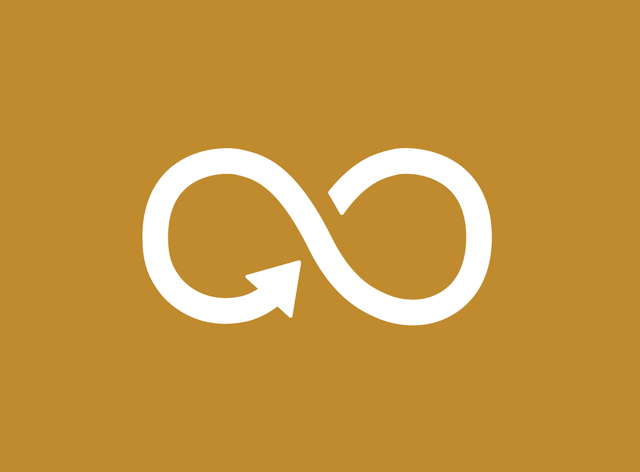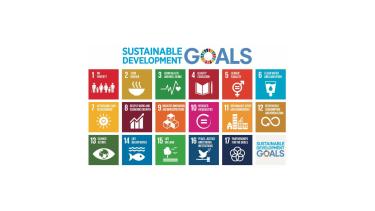On this page, you'll find a report on all the actions and activities initiated at the University of Namur in connection with United Nations Sustainable Development Goal #12: "Responsible Consumption and Production".
Social impact and actions
Corporate initiatives
Service Infrastructures et Gestion du Campus (SIGeC)
Energy: The mission of UNamur's Campus Management and Infrastructure Service (SIGeC) revolves around several energy-related activities:
- responsible management of energy consumption
- building construction, renovation and maintenance
Waste management: Activities on a university campus (student life, research, administration, teaching, catering) generate a large quantity of different categories of waste. Since the best waste is that which does not exist, UNamur is committed to reducing and sorting its waste, facilitating recycling and reuse. Learn more
More articles on the subject?
Recycling scientific equipment: The University of Namur has received a donation of equipment from the Thuin-based company Quality Assistance, CRO. This equipment now contributes to the research projects developed in several laboratories.
Sustainable and local purchasing: the Lyreco company officially presented the Lyreco Award to UNamur. The aim of the award is to highlight the customer who demonstrates sustainable purchasing behavior at Lyreco. Learn more
Coeur de Forêt - UbiCast Project
For the past two years, UbiCast, supplier of the auditorium recording solution deployed at UNamur, has replaced its end-of-year "goodies" with participation in reforestation projects. This year, UNamur is sponsoring 22 trees located on a project plot in Bolivia.
The annual "Maraude" at the Haugimont Estate
Every year, UNamur organises an event at the old orchard on the Haugimont Estate. A wide range of activities are on offer throughout the day: marauders with free marauding bags, explanations on how to manage the organic orchard, children's activities, information stands, guided walks with commentary, etc. Learn more
Kotélocal
The Kotélocal is a project student residence which aims at raising awareness for local and sustainable consumption. More info on Facebook
Collaborations and partnerships
Belgium - Tunisia collaborations
On Thursday 29 September 2022, the Vice-Rector for International Relations, the International Relations Service and the Department of Geology received Professor Fakher Jamoussi (Tunisia) as part of the "Tunisia on the move - 2022" project. For more than twenty years, the teams of Professors Johan Yans and Fakher Jamoussi have been weaving scientific, didactic and human collaborations aiming at enhancing the fabulous subsoil of Tunisia. Read more
The Green Deal
With the Green Deal and the collaboration with Happy Hours Market, UNamur is committed to making campus food sustainable. Read more
Collections with external partners
UNamur has organised a campaign to collect unused smartphones. Find out more... It also organised a collection of clothes for the homeless.
Research institute
Institute of Life, Earth and Environment (ILEE)
Research at the Institute of Life, Earth and Environment (ILEE) is relevant to several of the United Nations' Sustainable Development Goals (SDGs). For example, we study the impact of multiple stressors (chemical, physical or pathogenic) and/or pollutants (pesticides, pharmaceuticals, endocrine disruptors, neurotoxins, atmospheric residues) on organisms but also on ecosystems, and solutions are sought to strengthen their resistance and resilience and/or limit harmful products (e.g. immuno-stimulation, search for alternative pharmaceuticals). Furthermore, by prospecting and characterising geological resources (water, metals and other raw materials) and by integrating human use over the centuries, from Antiquity to the current Anthropocene, ILEE contributes to the sustainable management of natural resources, including architecture and art. The transition to a more sustainable agriculture is investigated through the concept of ecosystem services via mapping, modelling and integrated assessment. The consequences of climate change on human migration or the interactions between the different agents responsible for the transmission of vector-borne and zoonotic diseases are also at the heart of ILEE's research.
Research
Discover all publications related to the sustainable development goal "Responsible consumption and production" on the UNamur research portal.
Education
- Master in Smart Rurality: with "Smart Rurality" or "intelligent rurality", you learn to organize, in collaboration with a multitude of players, rural areas undergoing change to promote the well-being of citizens and economic, social, and environmental sustainability.
- Additional training in Sustainable Development: 75 hours to understand the issues of sustainable development and integrate them into your professional framework.

